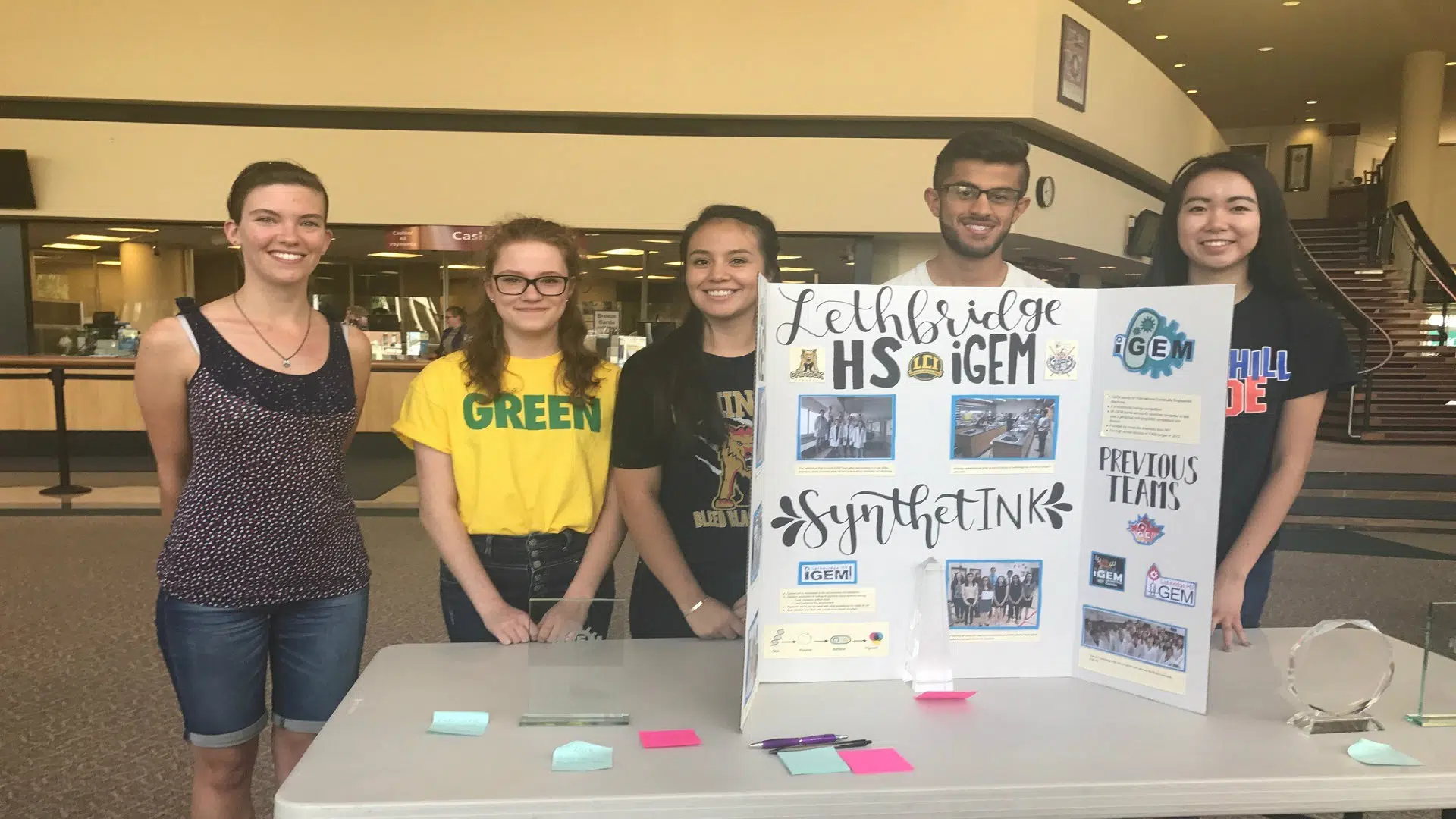
Lethbridge high school students produce eco-friendly ink for Boston science competition
LETHBRIDGE – It’s not an ordinary project for any ordinary science fair.
About a dozen students from Winston Churchill, Lethbridge Collegiate Institute and Chinook High Schools will be creating four environmentally friendly ink colours for the iGEM ( International Genetically Engineered Machine) competition in Boston in November.
The ink will be grown as different colours in E-coli bacteria for potential use in printing, textiles and paints.
iGEM began in January 2003 as a study course at the Massachusetts Institute of Technology (MIT) where students developed biological devices to make cells blink.
The course soon evolved into a summer competition and has now expanded to nearly 300 teams from more than 30 countries. The high school portion of the competition began in 2012.
Winston Churchill Grade 12 student Candace Chan says historically Lethbridge has done well, and eventually their idea could be marketed around the world.
“Right now, the production practices for producing ink aren’t environmentally friendly. The carbon black production burns petroleum which is not good for the environment. So, we want to try and minimalize [sic] the environmental impact.”
At this point she says no other company in the world is able to produce more than one colour, nor is the ink for sale anywhere.
“There is another company that’s based out of France, so they are a more established company, but their product is not actually in the market, so you can’t buy it. Whereas they are making only one colour, we are making four, because we want to show that you can do more than colour. When you have limited variety, consumers are probably not onlly just going to buy blue.”
The ink the students develop will be placed into a fountain pen, as proof of concept and will be taken to the iGEM competition when it takes place November 9-13. The students will find out at the end of the competition whether they have won any medals.
In 2013, the Lethbridge project on producing Oxytocin won a gold medal.


